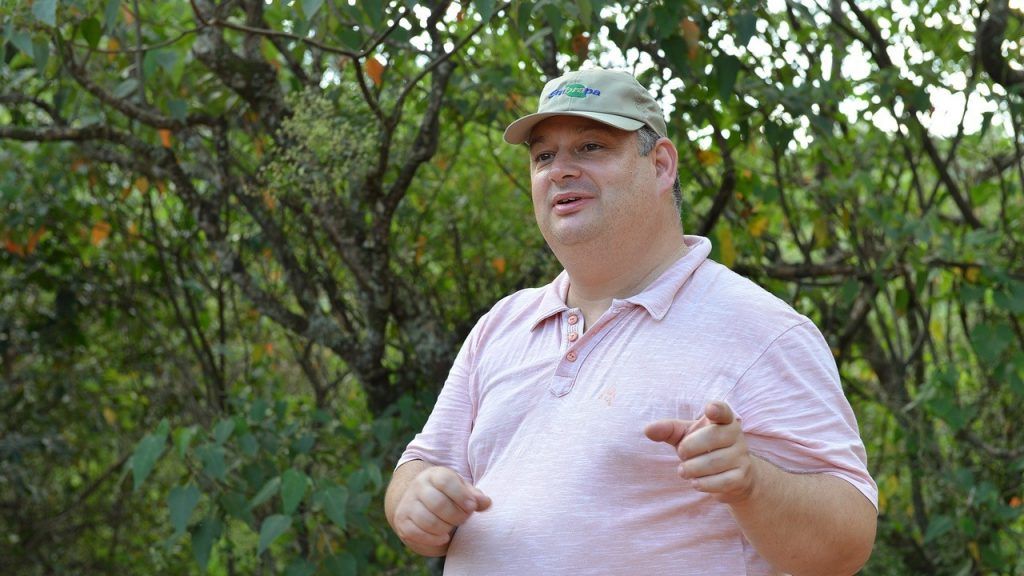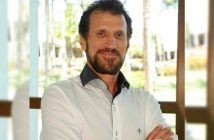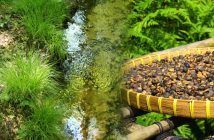This is the analysis by Giampaolo Queiroz Pelegrino, researcher in Global Climate Changes area and coordinator of Embrapa Climate Change and Agriculture Research Portfolio, interviewed by Grão Especial.
Pelegrino follows the COPs, Conference of the Parties, since the one occurred in Copenhagen, held in 2009. The first COP was held in Bonn, Germany, in 1995. In this sixth report, 195 countries signed the document, including Brazil, and over 14 thousand scientific papers were consulted.

Check it out:
Grão Especial – What are these reports? And what is the novelty in this last one?
Giampaolo Queiroz Pelegrino – One of IPCC roles is to produce reports, like the last one, released on August 9, addressing several possible scenarios for each country to assess policies applicable to their reality, and these results are discussed in global ambit. The last report demonstrated, scientifically, that man’s action is directly responsible for global warming. Paris Agreement’s goal was that countries needed to mitigate their actions to keep carbon emission at 1.5ºC and the report shows that this goal can hardly be achieved. “If we continue as we are, without reducing our carbon emissions, we will exceed a lot the goal established in the Paris Agreement, which is to keep emissions below 2ºC. We would reach 2.5, or 3°C, if we keep on emitting the way we are. If we increase carbon emissions then we will reach 4ºC, according to the report.
And if, on the other hand, we follow the trend to zero our emissions, then the increase would be around 1.5, 1.7, or 1.8ºC. Then we would comply with Paris Agreement goals. However, to reach 1.5ºC we would have to present negative emissions against the reference period. This is another very important information in the report and, maybe, a third aspect to highlight is that the report addresses the intensity of extreme events. Extreme events are heat waves, prolonged droughts, floods. An imbalance. Another aspect to be highlighted in the report is the human responsibility for CO2 emissions. In the most pessimistic projections, the global average temperature may increase 4º C.
Grão Especial – How will Brazilian agriculture be affected by climate changes from now on?
Giampaolo Queiroz Pelegrino – Agriculture is fully dependent on climate, and, on the other hand, it is also carbon dioxide emitter. So, it is necessary to study, reduce or adapt to climate changes for Brazil to play its role in reducing emissions. There are ways to contribute to reduce emissions in agriculture, for example, through the practices of the Low Carbon Agriculture Plan – ABC, which addresses direct planting system, livestock integration, biological nitrogen fixation, recovery of degraded pastures, waste management, water balance, and biodiversity, bringing profitability. These are actions that reduce emissions and assist in agriculture adaptation to the new scenarios.
Grão Especial – Can you explain a little how you work, based on IPCC reports?
Giampaolo Queiroz Pelegrino – about climate changes impacts, we work with simulation of future works, that is, from possible scenarios in the report, we use future climate scenarios as entry for our plant growth models, that is, how plants behave according to the climate. They are agrometeorological models that express the plant growth based on climate changes. These models are used, for example, for agricultural climate risk zoning. The past history and the risk for some cultures are analyzed, in a given soil, production, etc., which will provide the basis for the zoning agriculture policy, offer of agriculture credit and insurance for farmers in regions where risk is low, acceptable.
In the previous report, we made simulations of nine culture, studying the impacts of temperature rise on the development of these cultures. Now, we must absorb the new data from this last report and make new simulations.
In order to help farmers overcome these challenges, knowledge transfer should be made directly to them, as we are doing here, in addition to disseminating scientific and non scientific publications. We must transform information produced by science into a language accessible to farmers. In addition to dissemination, it is necessary to seek more advanced technologies. The farmer is looking for knowledge and solutions. The definition of public policies intended to reduce carbon emissions in Brazil is essential.
It is important to highlight that the climate report does not provide forecast. It works with scientific data to build scenarios. Projections consider several plausible future scenarios. But it will all depend on what we do, the actions the country will adopt.
Grão Especial – How is Brazil in this fight against global warming?
Giampaolo Queiroz Pelegrino – I’m optimistic. Brazil has a relatively clean energy matrix, we count on alternatives like electricity, solar energy, wind energy, and we master these technologies. It must be expanded, which is already happening. We have Proalcool, a real alternative to fossil fuel. We are in a good position. We still have large part of native vegetation cover, we have global ballast; we are an ecological power. We have done different significant efforts, now we are oscillating, but the important thing is that we must fight our inconstancy in our actions. Europe and the USA are more constant. We must be focused on the long term, because effects are always long term effects. We must correct some routes. Our problem is deforestation, is the Amazon rainforest. I follow COP since the one in Copenhagen, in 2009. I missed only two. I believe that in Glasgow Brazil will be under strong pressure associated to deforestation. There will be great pressure in agriculture, but it can also be a great opportunity for us to adopt cleaner practices that will generate less carbon emissions. The directions are settled. We can achieve our internal goals and actually contribute. But we need to be organized to include these actions.



